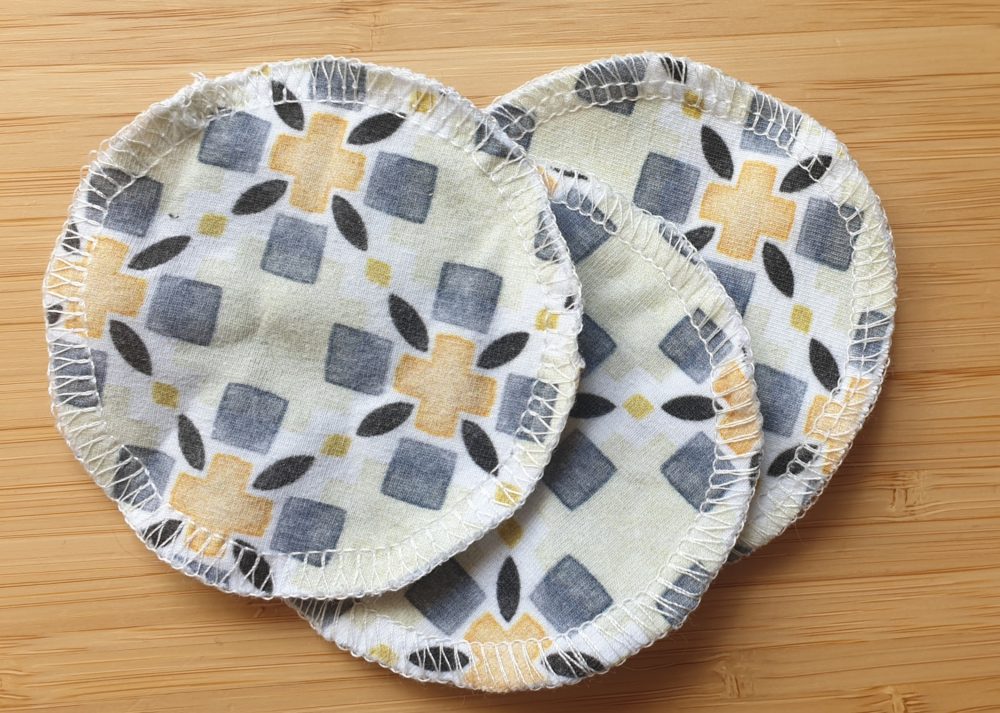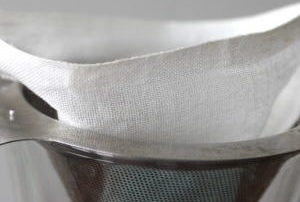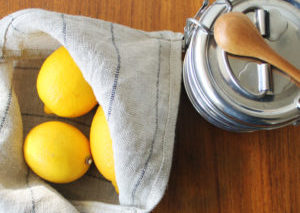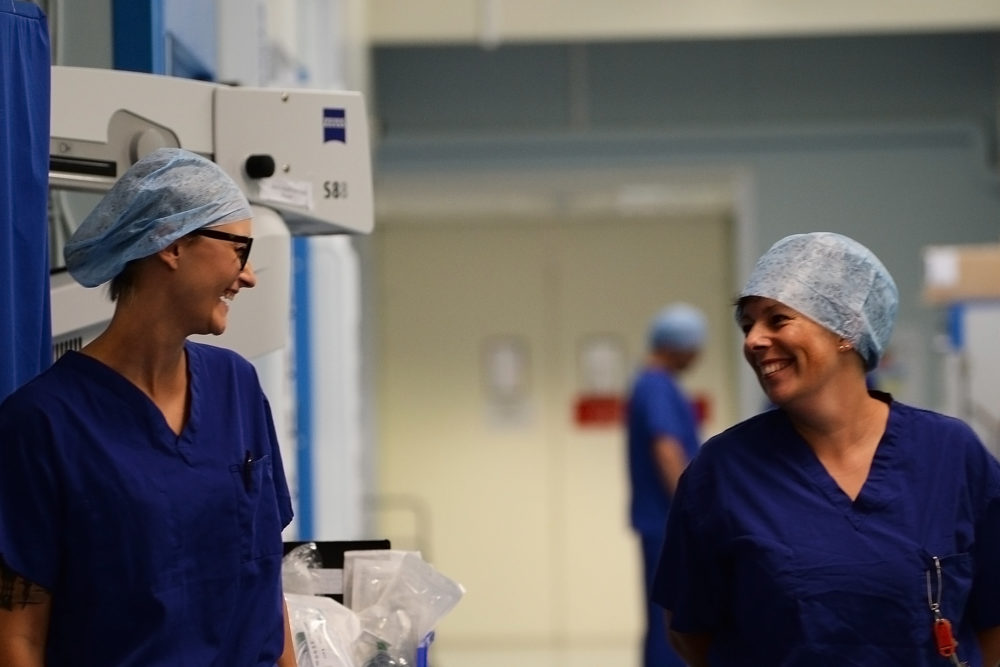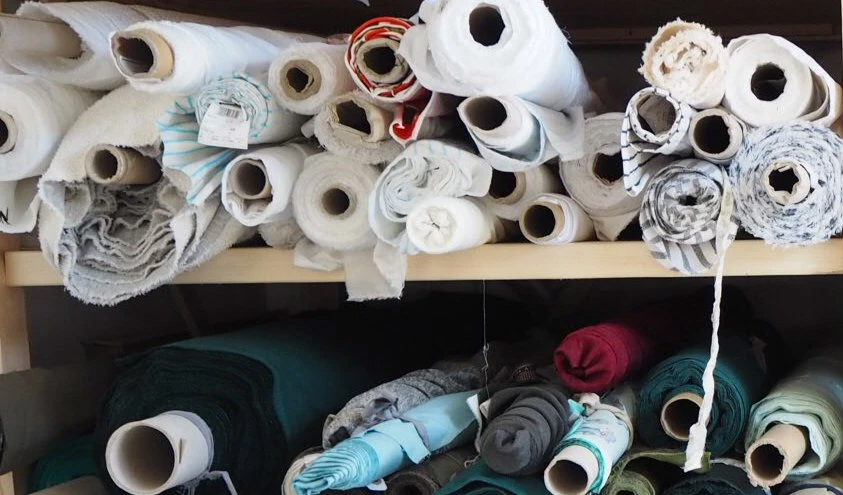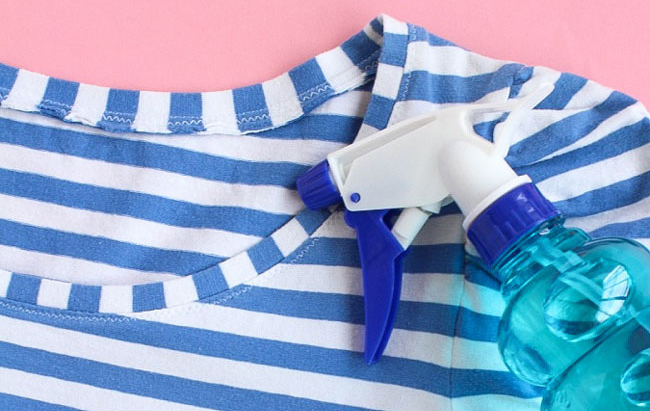Sustainability is as much at the heart of what we do at HOME as our artistic programme. And when it comes to sustainability, fast fashion plays a large part in how we treat our planet. Throwaway culture is responsible for huge amounts of plastic waste across the world as we buy more clothes than ever.
Our Head of Marketing, Ruth Jones, is a whizz with a sewing machine, so here she shares some of her tips for projects you can try at home during lockdown.
Ruth says: “Sewing your own clothes has become a large movement across the UK with the opportunity to create something truly unique you’re likely to look after, and keep those clothes longer than anything bought in a shop.
“Many pattern designers are independent small businesses and lockdown is a perfect opportunity to learn a new skill so we’ve collated the best projects for all levels for you to try something new and help the planet.”
Small Projects
Reusable Cotton Pads
Swapping out disposable makeup pads for reusable ones can make a big difference. This pad pattern from Selkie Patterns can be downloaded for free and is easy to make at home. Just cut out two circles of fabric back to back and sew around the edges however you like – no machine needed. When used just pop them in your washing machine.
Coffee Filters
(Photo: Selkie Patterns)
Coffee filters are expensive and instantly go in the bin. This tutorial can be used on coffee and loose leaf tea and is another free pattern. Here it mentions an overlocker but if you don’t have one you can just use a zigzag stitch on your sewing machine.
Food Wraps
(Photo: Selkie Patterns)
These food wraps can be used for anything in the kitchen and out. Store fruit or vegetables – you can even make a larger version for shopping.
Beeswax wraps are also easy to make to replace clingfilm in your kitchen. Read the National History Museum’s tutorial here.
Help The NHS
Sewers are coming together during this period to provide face masks and scrubs for hospitals and carers in need. Click here to find out what your local hospital needs.
Materials
(Photo: New Craft House)
So where to start? All of these projects can be made with small amounts of fabric and if you have the opportunity to reuse – do! Old curtains, duvet covers and clothes can all be cut up to be reused. Alternatively if you don’t have any fabric in the house head to somewhere like The New Craft House – a small business that only sells ‘dead’ stock (fabric that designers have left over after buying in bulk) or Manchester’s own Stitched-Up.
Make your clothes
(Photo: Tilly and the Buttons)
Once you’re up to speed on a sewing machine and ready for the next stage why not take a look at making your own clothes? It’s a cheaper and more sustainable way to build your wardrobe. Start on a small project and build from there. Tilly and the Buttons’ patterns are a great place to start and has tips on how to use a sewing machine.
Zero Waste
At HOME in our wardrobe department we make sure all our offcuts and leftover fabric is either used on another project or sent to someone who can use it again. When you’re at home this is harder to do – especially when you end up with lots of different colours and fabric types!
There are a lot of projects out there for smaller pieces of fabric. We’ve collated the best ones below.
If you still don’t know what to do with your fabric take a look on your local Facebook group. Lots of charities and schools are always looking for scraps for craft projects.
Looking after your clothes
(Photo: Tilly and the Buttons)
Did you know vodka can get the iffy smell out of clothes? Or putting your denim in the freezer makes them last longer? Pattern maker and former Sewing Bee contestant Tilly Walnes has created this great blog on how to look after your clothes.
The Guardian also have a series of How to Mend articles on repairing jeans, broken zips and sewing on a button.
Our sustainability programme is supported by Shire Leasing.
